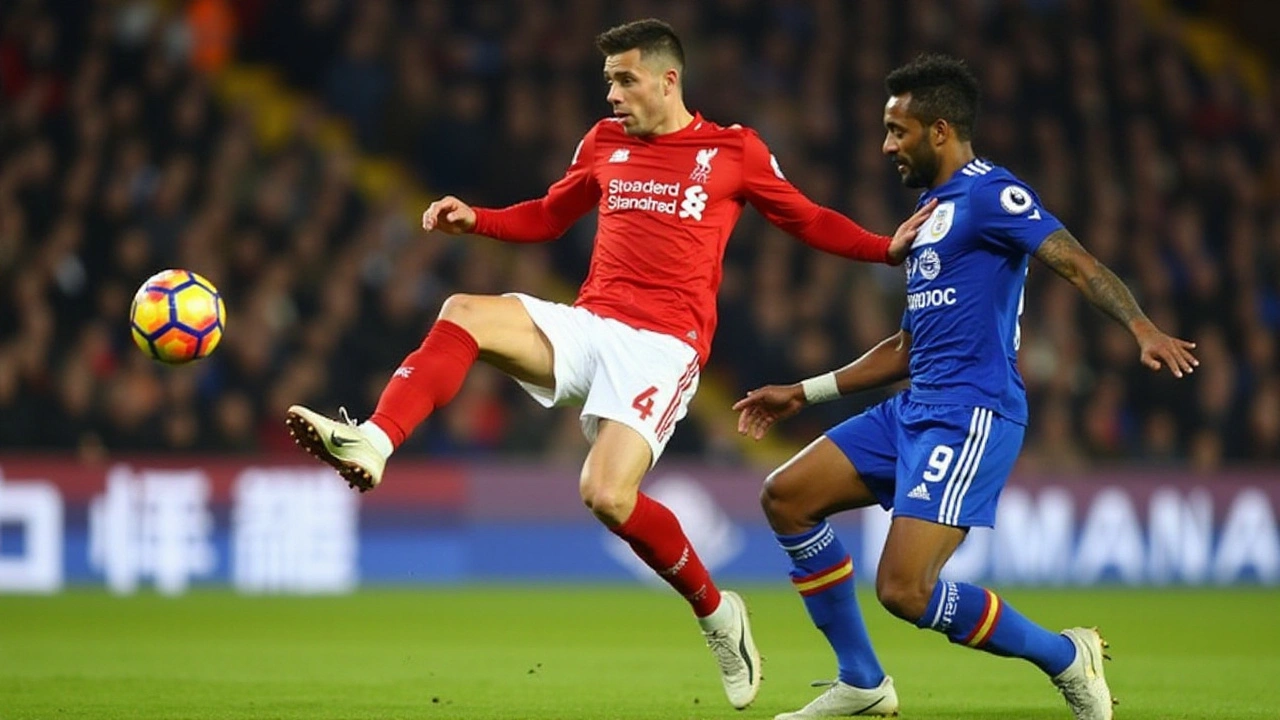Live Football Updates from BBC Sport
In the ever-changing world of football, keeping up with the latest news, transfers, and performance analyses can be a daunting task. BBC Sport's live football updates aim to bring fans everything they need to know in real-time, covering a range of leagues and topics. Here, we delve into the most recent happenings, focusing on transfers, managerial decisions, and the increasing importance of data analytics in this beautiful game.
Major Transfer News
Football transfers are the heartbeat of every season, bringing fresh excitement and speculation. This summer, few stories have captured the imagination as much as Arsenal's impending acquisition of Italy defender Calafiori. After months of negotiations, the deal looks closer than ever, signaling a significant boost for the Gunners' defensive line. Calafiori's addition is expected to give Mikel Arteta's squad a more robust and versatile defense as they aim to climb higher in the Premier League standings.
Meanwhile, Manchester City fans can breathe a sigh of relief. Manager Pep Guardiola has categorically confirmed that Kevin De Bruyne, one of the club's most influential players, is not leaving. Rumors had been swirling around the Belgian midfielder's future, but Guardiola's statement puts those to rest, ensuring that De Bruyne remains a central figure in City's quest for more silverware.
In other significant transfer news, Aston Villa has successfully completed a £50 million deal for Everton's Onana. The move represents a major coup for Villa, enhancing their midfield options considerably. Onana's arrival is anticipated to bring a blend of creativity and strength, attributes that Villa hopes will propel them up the league table.
The Role of Data Analysis in Modern Football
While player skills and strategies have always been pivotal, the modern era has seen data analysis become an essential part of football. Clubs like Manchester City and Liverpool are at the forefront of this technological revolution, using advanced data tools to scrutinize every aspect of the game. From player performance metrics to opposition analysis, data analytics plays a crucial role in decision-making processes.
Data experts and analysts now hold key positions within football clubs, helping managers and coaches make informed decisions. For example, they can analyze an opponent's weaknesses, optimize training regimes, and even predict player injuries before they occur. Manchester City's data-driven approach has been a significant factor in their recent successes, proving that numbers and algorithms can influence outcomes on the pitch.
Video Highlights and Story Features
In addition to the written updates, BBC Sport's live feed includes various video highlights and expert analyses. One of the standout features is the extensive look at England manager Gareth Southgate's journey. From his playing days to his current role, Southgate's story is one of resilience and strategic acumen, making it a compelling watch for any football enthusiast.
Another highlight focuses on Real Madrid's Kylian Mbappe, offering a deep dive into his career and what makes him one of the most exciting players in the world. The video features interviews with coaches, former teammates, and analysts, providing a comprehensive view of the young star's impact on the game.
Regular Updates to Keep Fans Informed
BBC Sport ensures that their live feed is continuously updated with fresh content, keeping fans in the loop with the latest developments. Whether it's a last-minute transfer deal, a major match outcome, or an insightful analysis, fans can rely on BBC Sport to deliver timely and relevant information.
Football is a sport that thrives on moments of brilliance and strategic mastery. With BBC Sport's detailed coverage, fans are offered a front-row seat to all the action, ensuring they never miss a beat.


Ron Rementilla
Calafiori’s arrival could finally give Arteta the defensive depth he’s been craving, especially against those high‑pressing sides. The Italian left‑back brings versatility, able to slot in a back‑four or a back‑three without missing a beat. Adding his aerial prowess should help Arsenal cope with set‑piece threats that have plagued them all season. If he settles quickly, we might see a dip in the goals conceded column within the next ten games. It’s a smart piece of business in a market that’s otherwise been rather stale.